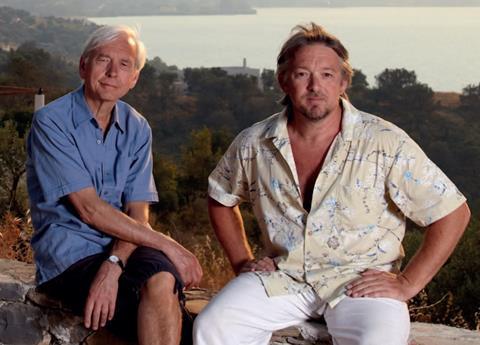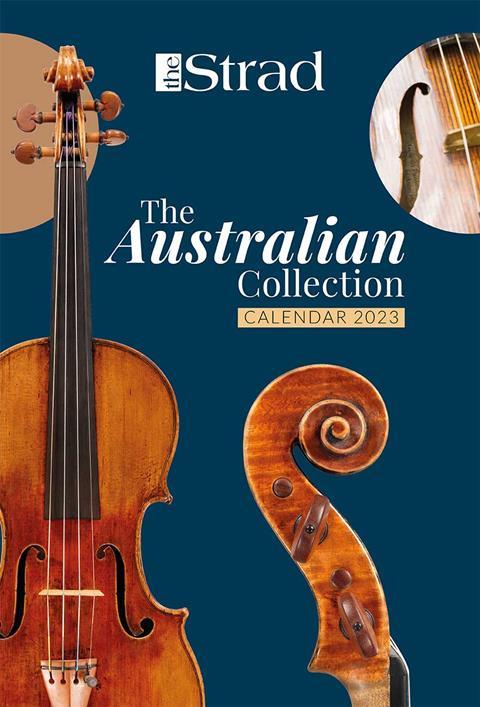The famously forthright BBC journalist and his cellist son discuss career concerns, house construction and role reversal

Discover more Featured Stories like this in The Strad Playing Hub.
This article was first published in the May 2012 issue of The Strad
Christopher Humphrys
I started playing the cello quite late, when I was seven or eight years old, after an orchestra came to my school and played for us. I had never thought about playing an instrument until then, although both my parents had always been interested in music. One of my earliest memories is of being in my bedroom and hearing Mozart blasting out from my parents’ stereo.
I was about 17 when I decided I wanted to play professionally. My father tried to dissuade me at first — he got a cellist friend to call me and tell me how bad the pay was and how hard it was to get work. And he was right: it’s not an easy life. I wouldn’t want my children to be musicians. But once he realised I was serious about it, he was very supportive and backed me completely.
Journalism was never something I wanted to do, partly because of my father. I always thought that if I had any success, people would say I had only got there because of him. What’s been really good about our relationship is that we have similar interests but we do different things. I do some writing now, but if I’d made it my career it would have been impossible to escape his shadow. With the cello I know I’ve done it by myself.
I taught him the cello for about a year, when I was studying at the Royal College of Music. I think there was a part of him that thought, ‘Playing the cello can’t be that hard, I can do that.’ So I think it was a good experience for him because it made him realise there’s a bit more to it than meets the eye. Sometimes he did get frustrated, but mostly we had a lot of fun.
I’ve lived in Greece for the past twenty years, and eight years ago we decided to build a holiday home together in the Peloponnese countryside. We have children of a similar age and they get on very well, so we often plan holidays together at the house. He doesn’t like sitting on beaches, so we do a lot of walking and hiking. He can be a bit grumpy around the house and is not the most patient man in the world, but we always have a good time. He may sometimes sound scary on the radio but actually he is very open-minded.
Read: Double Acts: Mstislav Rostropovich and Maxim Vengerov
Read: Double Acts: Cellists Luka Šulić and Stjepan Hauser of 2Cellos
Discover more Featured Stories like this in The Strad Playing Hub.
This article was first published in the May 2012 issue of The Strad
John Humphrys
Christopher’s mother and I had always hoped our children would play instruments, so when he told us he wanted to have lessons we were delighted. At first he wanted to play the double bass, but we were travelling a lot because of my job and living in foreign countries. The idea of hauling a bass around the world was rather intimidating, so we steered him towards the cello instead. Luckily he loved it from the word go.
When we came to live in the UK I bought a farm and Christopher decided he would like to do a degree in agriculture, so we set off around the country visiting universities. At the end, we were sitting at home deciding which one he liked best and he said: ‘I don’t want to do this. I want to play the cello.’
I knew the principal at the Royal College of Music through a mutual friend, so I arranged a consultation to fi nd out if Christopher was good enough. At the end, the principal said: ‘On no account should you even think of a career in music.’ There was a long pause and my son looked utterly devastated. But then he continued: ‘Unless doing something else would make you very unhappy.’
I was concerned on one level because everybody knows it’s not the easiest career, but I never tried to talk him out of it. In fact I hugely envied him, and still do. He loves what he’s doing, and that’s all you can want for your children.
He gave me a few cello lessons when he was still at college. He was remarkably patient and rather good at it, and there were no tantrums — on either side. It was an interesting role reversal. For the first time in our relationship I relied on my son and he called the shots. It was rather sobering — and probably very good for me.
Christopher’s great enthusiasm and spontaneity can be both a blessing and a curse. He believes what he wants to believe. When we built the house in Greece, there were many times when he would say, ‘I’ve found the perfect builder,’ and they would turn out to be absolutely hopeless. But we never fell out. He is one of those people who never doubts that things will turn out OK in the end, and I envy that.
INTERVIEWS BY FEMKE COLBORNE
Read: Double Acts: actor Russell Crowe and violinist Richard Tognetti
Read: Like father, like daughter: Artist Confidential with Esther Yoo and her dad
Discover more Featured Stories like this in The Strad Playing Hub.
This article was first published in the May 2012 issue of The Strad
The number one source for playing and teaching books, guides, CDs, calendars and back issues of the magazine.
In The Best of Technique you’ll discover the top playing tips of the world’s leading string players and teachers. It’s packed full of exercises for students, plus examples from the standard repertoire to show you how to integrate the technique into your playing.
The Strad’s Masterclass series brings together the finest string players with some of the greatest string works ever written. Always one of our most popular sections, Masterclass has been an invaluable aid to aspiring soloists, chamber musicians and string teachers since the 1990s.
This year’s calendar celebrates the top instruments played by members of the Australian Chamber Orchestra, Melbourne Symphony, Australian String Quartet and some of the country’s greatest soloists.













































No comments yet